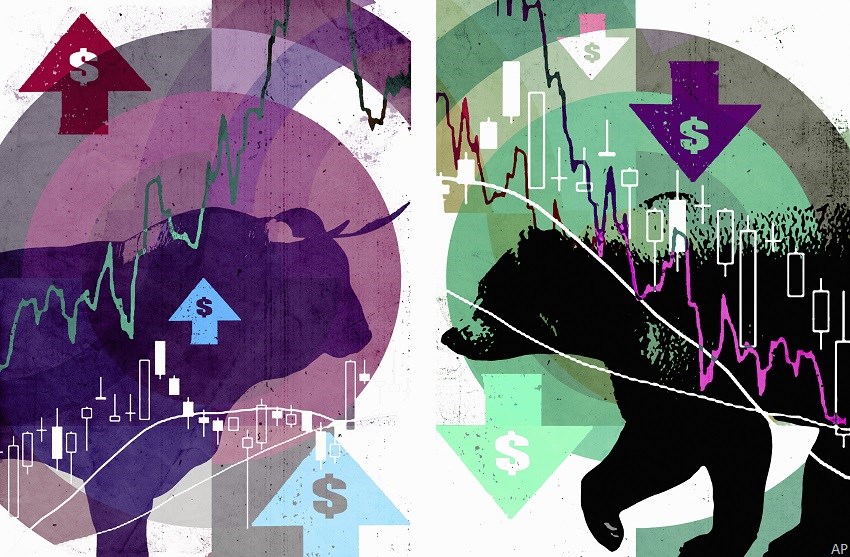
In more than 20 years of professional global equity investing, Dana Love has never seen such a “messy and difficult” market.
“Drastic times require drastic solutions,” says Love, Vice president and senior portfolio manager at 1832 Asset Management in Toronto. Love heads the team managing Scotia Global Small Cap, which includes portfolio managers Kevin Kaminski and Danilo Martins.
“The past 22 months have been a highly uncertain period and people living today haven’t experienced all these variables before. The real economy is affected and so are financial markets.”
Tough Terrain
Investors are navigating unprecedented events, he says, such as the evolving global pandemic, the monetary and fiscal response to it on the part of policymakers around the world and dramatic climate changes.
The picture continues to shift, with inflation heating up and no longer appearing to be just a transitory threat, and supply bottlenecks disrupting the movement of goods.
Supply Difficulties Domino
“Disruptions in freight movement can have a bullwhip effect with a blockage in one part of the transportation chain leading to backups all down the line, causing problems for many businesses,” Love says.
Issues in China are also causing reverberations globally, with debt financing problems at the massive real estate developer China Evergrande Group spreading to other property developers as well as related financial institutions.
Compounding uncertainty, the Chinese government is imposing more regulations and restrictions on tech giants and other large companies as it moves toward its goal of spreading prosperity to a broader base of people in China.
Although Love’s goal is to hold companies in the fund for the long term and indefinitely if possible, the team recently made “a quick round trip” with its decision to unload A-Living Smart City Services Co. Ltd., a Chinese property management firm.
Easy Money Minefields
With the relatively low cost and easy availability of money, a new breed of speculative investor is exerting an influence on the markets, Love says. These investors tend to play on trends, engaging in trading as a pastime or form of entertainment and creating pockets of overvaluation for periods of time. Areas that are currently popular with more speculative traders include technology stocks and companies tied to green energy.
“There is a lot of throwing of darts, and a lot of solid businesses are being overlooked, ” Love says.
This ignoring of good businesses creates pockets of opportunity for professional investors like Love who can take advantage of attractive valuations in overlooked companies that are well-run and profitable, and meet such criteria as strong free cash flows, low debt and high enterprise value.
“Stock markets in general are overvalued, it’s similar to the tech bubble of 2000,” Love says. “Concept companies tied to themes that are coursing through the economy are finding favour with many investors, although they may not have good balance sheets and don’t necessarily have earnings.”
Dull with Shiny Balance Sheets
Companies are often overlooked if they’re not exciting enough, he says. But for Love, boring can be beautiful if the companies consistently produce above-average returns and can profitably reinvest their cash to create strong compounded growth over a multi-year time horizon.
Love is patient, and usually sets a time horizon of five to seven years for holding a company. Ideally, the team will never need to sell good companies and can continue to hold as they grow.
Let It Be a Business
“Our mentality is that we would like to hold a company indefinitely, and although we don’t always do that, it’s our mindset,” Love says. “We look at making an investment as buying a piece of a business, not as trading pieces of paper on the stock market. That helps us filter out the noise, be less emotional and less affected by volatility.”
He points out there are many things the team can’t control, including the economy, inflation, interest rates, global supply chains, policy makers’ decisions and the behaviour of other investors, “but we do control our own behaviour and our investment process.”
The team’s internal benchmark is a combination of the MSCI World Small Cap Index and the MSCI World Index, which means Scotia Global Small Cap’s managers are not restricted to small caps alone. They often continue to hold favourite companies as they develop beyond the small-cap stage into firms with multi-billion dollar market capitalizations. At the other end of the spectrum, they will also own promising microcap companies if they are sufficiently liquid.
The team is free to search the entire world for ideas and keeps the number of holdings at 30 to 40 companies. On a geographic basis, the largest single country weighting is currently the U.S. at about 25% of fund assets, but Love emphasizes that leaves a generous 75% invested in other parts of the world.
“Our goal is to invest in resilient companies that can withstand the global pandemic,” Love says. “We take the threat of new variants seriously.”
For example, although the team held a position in American online travel company Expedia Group (EXPE) through the worst of the pandemic and benefitted from its rebound as stocks recovered from the 2020 market rout, the position was sold in 2021 due to continuing Covid-related risks.
One of the fund’s long-term holdings and a significant position in the top 10 is Topdanmark AS (TPDKY), a Denmark-based insurance company that Love describes as a financial “compounding machine.” He says the firm has high underwriting standards and ensures that it is adequately compensated for risk by the premiums it charges, all of which boils down to a persistently high return on equity.
Another significant holding is Dolby Laboratories Inc. (DLB), a U.S. firm best known for its audio equipment in movie theatres. The company is making inroads beyond its base in the consumer electronics industry to provide state-of-the-art audio and visual technology to new customers like Apple Inc., who can use Dolby’s technology in small applications such as smartphones.









.jpg)











